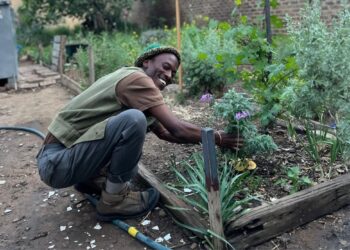South Africa’s visit to Indonesia is key, and part of the broader agenda of strengthening friendships and firming up our export diversification approach. Indonesia remains one of the crucial markets for the expansion of our exports, particularly for wine, beef and various fruits, writes Agbiz chief economist Wandile Sihlobo.
Currently, Indonesia is not one of our biggest agricultural markets. The country accounts for only 0.3% of our agricultural exports to the world, with US$39 million, out of US$13.7 billion in agricultural exports in 2024.
Yet, Indonesia is a major agricultural exporter in the world. The country imports roughly US$29 billion of agricultural products each year. The major suppliers of agricultural products to Indonesia include Brazil, China, Australia, the United States, Thailand, Argentina, Vietnam, and India, among others.
The key products that Indonesia imports from these countries are wheat, sugar, rice, soybean oilcake, soybean, maize, cocoa beans, beef, onions, apples and pears, table grapes, and peanuts, amongst others. From a rough scan of the products that Indonesia imports mainly from the world, we can partially explain our current minimal participation.
Room to expand agricultural exports
Still, there is room to expand our beef, fruits and wine exports to this market. Importantly, the South African visit doesn’t end in Indonesia but also includes Malaysia (1.4% of South Africa’s agricultural exports) and Vietnam (0.6% of South Africa’s agricultural exports), which are also key agricultural importers.
Notably, South Africa already has some level of penetration in these markets. The current focus is on expanding exports to a broader range of agricultural products and other industries by initiating discussions on reducing import tariffs and phytosanitary barriers in certain markets.
Related stories
- US tariffs add pressure as global markets face rising uncertainty
- SA scrambles to shield farmers as US tariffs bite
- Wesgro committed to supporting exporters amid new US tariffs
- Agro-industrial parks to unlock Africa’s processing potential
In recent times, South Africa has not moved quickly to open up many export markets. We had continued on a piecemeal approach and were not always eager for more ambitious trade agreements due to sensitivities in some industries and other issues.
The success in agricultural exports, mainly, rests on the markets that were opened in the early 2000s. The renewed geopolitical tensions globally and the general expansion of our agricultural production have forced us to focus more on exports these days. Our approach, however, will need to favour signing free trade agreements while assessing the risks to our domestic industries.
There is no way our sector could grow sustainably without an intense focus on exports. We already export about half of our agricultural produce in value terms. If we consider the expansion in production, it will be sustained through exports. This export push is an ambition shared by both the government and the business community for our farming sector.
READ NEXT: FMD shocker: China slams brakes on SA beef imports
Promoting trade and investment
I must say, however, that as these high-level visits, which spotlight our industries, occur, we must also assess and enhance our capacity, as a country, to execute trade negotiations and secure trade deals for industries. We may no longer have the skills we had in the early 2000s in some departments. Therefore, capacitating officials while broadening the political conversation is key to the success of our export diversification.
This message applies to all exporting sectors in our economy, not just the agricultural sector. Overall, South African political leaders and business must continue their presence in the global arena, as this is key to advancing our economic and commercial diplomacy.
While we didn’t pay much attention to economic and commercial diplomacy matters in the recent past and relied on the success of opening markets in the 2000s, today, we need to move quickly to advance trade in new areas.
Another vital aspect of this is the promotion of investment opportunities in the various sectors of our economy. As all this is happening, the various domestic reforms and necessary improvements in municipal functioning and crime fighting must continue, as they are prerequisites for the growth of domestic exporting firms and farming businesses.
- Wandile Sihlobo is the chief economist of the Agricultural Business Chamber of South Africa (Agbiz). The views and opinions expressed in this article are those of the author and do not necessarily reflect the views or positions of Food For Mzansi.
READ NEXT: La Niña brings flood risk, above-normal summer rain

















